
Jan Amos Komenský, latin Iohannes Amos Comenius, German Johann Amos Comenius (28.March 1592 southeast Moravia – 15.November 1670 Amsterdam
- teacher of nations, philosopher, visionary and bishop of Unity of brethern = Moravian brethern
Jednota bratrská - Unity of brethern
Due to the fact that the exiles considered themselves descendants of fraternal unity and came from Moravia, the name "Moravian brothers" was adopted for them.
Visionary Comenius: he lived only a few happy years, yet he devoted his whole life to the correction of human affairs. When the thirty year war began in Europe he had to go to exile and spent his life around Europe in different places but in spite that his life was complicated the work he left to us has still big meaning for today.
From Wikipedia:
From Wiki
John Amos Comenius (/kəˈmiːniəs/;Czech: Jan Amos Komenský; German: Johann Amos Comenius; Latinized: Ioannes Amos Comenius;
28 March 1592 – 15 November 1670)was a Czech philosopher, pedagogue and theologian who is considered the father of modern education. He served as the last bishop of the Unity of the Brethren before becoming a religious refugee and one of the earliest champions of universal education, a concept eventually set forth in his book Didactica Magna. As an educator and theologian, he led schools and advised governments across Protestant Europe through the middle of the seventeenth century.
Comenius introduced a number of educational concepts and innovations including pictorial textbooks written in native languages instead of Latin, teaching based in gradual development from simple to more comprehensive concepts, lifelong learning with a focus on logical thinking over dull memorization, equal opportunity for impoverished children, education for women, and universal and practical instruction. Besides his native Moravia, he lived and worked in other regions of the Holy Roman Empire, and other countries: Sweden, the Polish–Lithuanian Commonwealth, Transylvania, England, the Netherlands and Hungary.
The Comenius Medal, a UNESCO award honouring outstanding achievements in the fields of education research and innovation, commemorates Comenius.
John Amos Comenius was a bishop of the Unity of the Brethren church that had its roots in the teaching of Czech reformer Jan Hus. One of his most famous theological works is the Labyrinth of the World and Paradise of the Heart. The book represents his thinking about the world being full of various useless things and complex labyrinths. The true peace of mind and soul can be found only in the one's heart where Christ the Saviour should dwell and rule.
In the whole of Czech history we find only a few of such personalities as Jan Amos Comenius. Today, the world knows him primarily as a "teacher of nations", but to understand him "only" as an educator would be a mistake. He was also a philosopher, a bishop, a linguist and a man who was invited to important political meetings of his time. But his ambition went even further: he wanted to create a philosophical system encompassing all the knowledge known so far (Comenius called it Pansophy), which would lead to the correction of mankind.
In his works, he promoted the so-called natural education, which he derived from the cognition and imitation of nature. He was in favour of establishing schools in every town and village where children would be taught together. At that time, education was achievable only for children from wealthy families. It was taught in families where the family teacher attended for one or two children. The idea of group learning, where the teacher would be in charge of a larger number of pupils, was a great coup in pedagogy.
The Great didactics (Didactica magna) is his first great pedagogical work. It was written in Czech under the title Česká didaktika and later translated into Latin. It was published in 1657. It contains the principles of modern teaching and an opinion on the concept of education-Comenius divided education into four stages, each stage after six years.
1. grade-0 – 6 Years, Nursery School, i.e. upbringing in the family
2. Grade-6 – 12 years, National School with instruction in mother tongue
3. Grade – 12 – 18 years, is no longer intended for all youth – this is a gymnasium, school Latin
4. Degree – 18 – 24 years, Academy, University + 2 years of traveling the world
For instance:
from 12 to 18, the youth is supposed to attend a Latin School, which should be in every city. Education is based on seven liberal arts (grammar, rhetoric, dialectics, arithmetic, geometry, astronomy and music), natural sciences, geography, history, mathematics and languages such as Latin and Greek. Comenius, however, recommends another more language, so that everyone can communicate with their neighbors.
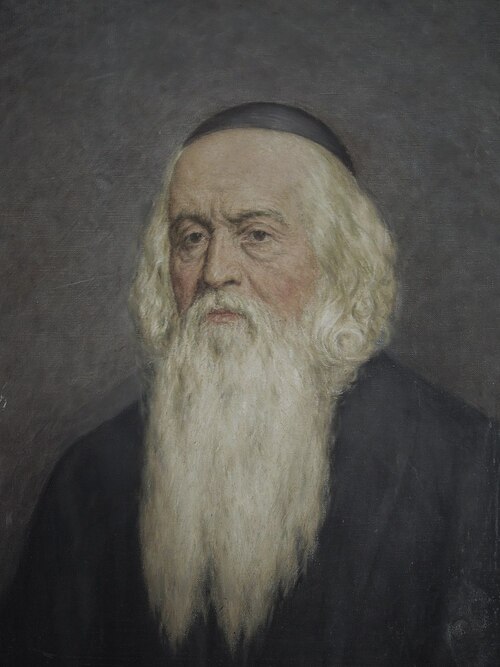
In teaching himself, Comenius applied the following principles:
the principle of clarity – direct learner experience
the principle of systematicity and consistency - the curriculum should build on each other, not only in individual subjects, but also between them. There is a need to ensure a consistent educational regime
the principle of activity – pupils should acquire their knowledge through their own experience, use it in practice
the principle of permanence – it is necessary to repeat the lesson systematically
the principle of adequacy – the teacher should proceed from the age and individual abilities of children
Children divided according to talents:
bright, they make you happy
bright, lazy
bright, rebellious
with a lack of a sharp mind
with a lack of sharp mind, lazy
with a lack of sharp mind, rebellious
Parents and the teacher should be an appropriate example for the child and lead him to a correct lifestyle. He recommends a suitable diet, alternating work with rest, getting enough sleep (8 hours) and taking care of body hygiene.
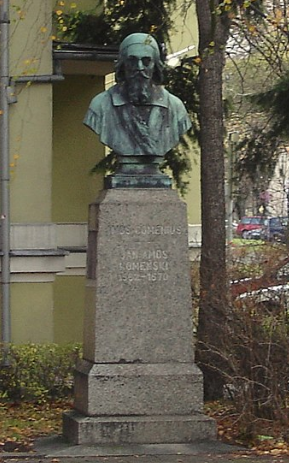 Komenský monument in Polish Leszno
Komenský monument in Polish Leszno
In the years 1654-1656 he again stayed in Leszno, where he worked on pansophy, published a dictionary of Czech speech and a dictionary of pansophical definitions. In 1654, Sweden invaded Poland, but the Swedish invasion of Poland eluded Leszno for some time. In 1655, the Swedish army came to Leszno, 27. April 1656, 10,000 Polish partisans began to besiege the city, and in the ensuing fire, Comenius lost almost all his property and valuable manuscripts such as the Czech-Latin dictionary, on which he worked practically all his life and which he considered a pivotal work.
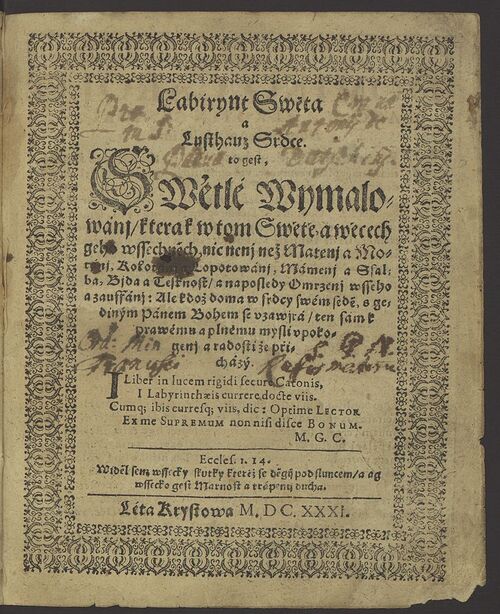 Labyrint světa = Labyrinth of the world
Labyrint světa = Labyrinth of the world
Comenius ' multifaceted work draws its inspiration from the basic sources of European civilization-from antic period, from Christianity and from Renaissance humanism, but its message looks to the future.
One of his most important work is Orbis pictus (1658)
- the first picture book in the world (for greater clarity, illustrations on individual topics)
Labyrinth of the World and Paradise of the Heart is another book - a satirical allegory. Considered a jewel of Baroque literature, it is one of the author's most important works. Comenius finished the first version in 1623, but he rewrote the book several times, changing its concept and form. The book remains the most widely read work of older Czech literature.
The world is portrayed as a city which resembles a labyrinth, entered by a pilgrim (the narrator and author himself).
The book is written in an artistic language. It is a poetical vision, and Comenius doesn't just criticize society; he also tries to capture the progress of Man in general (and show the dualism of material and spiritual ways of life). He points at the vanity of human endeavour that focuses on the material world and tells the reader that one must follow the will of God, as it is revealed in the Bible.
Comenius wrote many more books, he travelled and stayed in many European places - London, Hungary, Poland and the last years of his life he stayed in Amsterdam were he died and is burried in Naarden.
Here just some of his quotes:
You can teach with words, educate only by example…
If you do not understand the things behind words, you are not wise, but you are still a parrot…
Idleness is Satan's pillow. Whoever Satan finds unemployed, he will employ him first with evil thoughts and then with evil deeds…
On his birthday 28th March we celebrate in Czechia the Day of teachers.
When I was student teachers always got from us a bunch of flowers on this day.
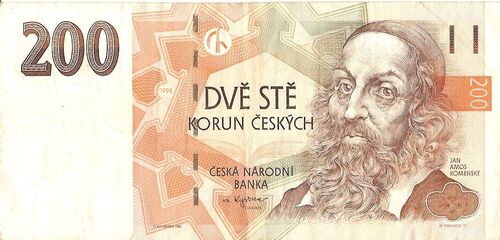 Czech banknote with portrait of J.A.Komenský
Czech banknote with portrait of J.A.Komenský
He spent most of his life in forced emigration, but he proved incredible: the rulers of most Protestant Europe, including, for example, the Swedish queen Christina or the lord protector of England, Scotland and Ireland Oliver Cromwell, as well as the intellectual leaders of many countries, turned to him as unquestionable authority.
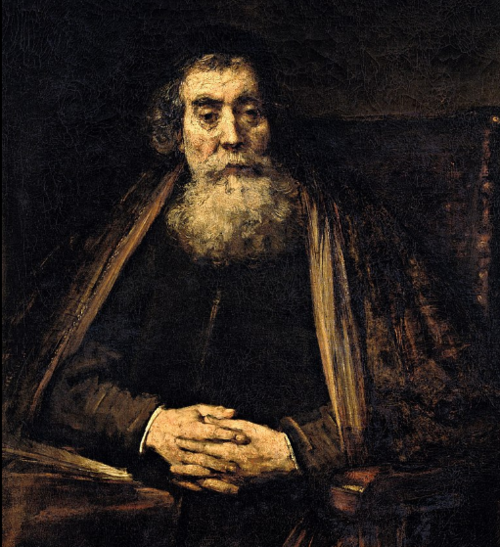 Rembrandt,Old man,gallery Uffizi,Florence -
Rembrandt,Old man,gallery Uffizi,Florence -
most probably portrait of Comenius
The upbringing of the child, said Comenius, has three main goals:
to know yourself and the world – education in sciences, arts and crafts
control yourself – moral education
ascend to God-religious education
Thanks for reading Margaret
